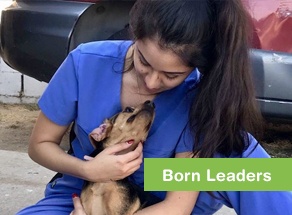Career Center
Find What You Love by Trying Something New
19/09/2019 06:00am | 3185 viewsBy Kim Perez
Adults love to ask kids what they want to be when they grow up. Rarely is “recruiter” an answer. “Most kids don’t imagine that they’ll be a recruiter one day – including me,” said Marisa Cañizares. “But I’ve been recruiting for seven years now, and it turns out it’s something I really enjoy.”
Career Center
Latinos wanted: Push for Hispanics in STEM Fields
02/03/2014 01:56pm | 21592 viewsIn some regards, UC Berkeley Ph.D. student Anastasia Chavez’s story should be commonplace: After graduating from college, the first in her family to get a college degree, Chavez went for her master’s degree at the behest of a “pretty amazing mentor” while marrying and starting a family.
Epitomizing the uniqueness of her story and ubiquitous problem facing universities across the country is the fact that this Latina student arrived at UC Berkeley’s math department among 161 Ph.D. students, 30 of which were women and six Chicano/Latino.
Career Center
Recruitment Best Practices Are Needed to Activate Hispanics in STEM Education and Careers
29/11/2013 11:16am | 9936 viewsWhen it comes to STEM education, the U.S. is not faring well compared to other countries. According to World Economic Forum statistics cited by Level Playing Field Institute, the nation ranks “52nd in the quality of mathematics and science education” and “27th in developed nations in the proportion of college students receiving undergraduate degrees in science or engineering.”
Career Center
Hispanics and Healthcare Careers: An Ideal Match
01/07/2014 10:06pm | 8574 viewsIn this HHL video, Rosie Armendariz, Lead Clinical Recruiter at City of Hope, discusses how healthcare and biomedical fields are great careers for Hispanics. With over 15 years combined experience in the field of science and clinical research, allied health, nursing and fortune 500 recruitment, Rosie knows first-hand how Latino culture and background fosters ideal candidates for the healthcare field.
